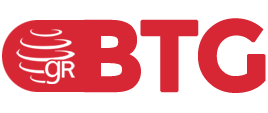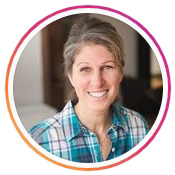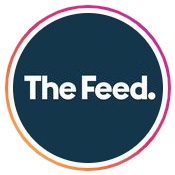Did you know Hugo Houle once shared a Big Mac with David Boily during a stage in the Tour of California?
(I didn’t, and I’m pretty sure I was the sport director at that race! – kev)
|
How about the fact you can buy Leah Kirchmann’s Banana at the Fixed Gear Cafe in Sittard and Maastricht? Or that Svein Tuft once drank a beer while climbing up the Zoncolan during the Giro d’Italia?
|
Anne Guzman did a great job of teasing out some fun-facts from: Alison Jackson, Leah Kirchmann, Hugo Houle and Svein Tuft during #conversation 02 on Nutrition. It wasn’t all goofiness, you can watch the full one hour episode on Youtube.
|
Watch on YouTube|
If you want the gist of it, here’s the 7 key things Anne feels you need to know:
👇
1 Carbs Matter
Having a good nutrition foundation matters. Mastering the basics is the one of the smartest things you can do as a developing cyclist. A young competitive cyclist will do well focusing on optimal carbohydrate intake to fuel the work at hand, within the context of their training. Hard training and racing will suffer on low-carb diets. All the panelists, especially Hugo, stressed the importance of eating lots of carbs.
2 Don’t restrict your diet, especially young, growing athletes
Cycling is a sport filled with (folk)lore around weight, but if you are still young and growing restricting your diet will do more harm than good. Optimizing is the final 1% and something you can try once you’ve reached a really high level and you’re physically mature. Leah talked of under-nourishing without even knowing it and AJ had fun stories about dealing with some of that old-school euro-mentality.
3 The fueling window
On the bike consume 60-120g of carbohydrates per hour. This is the optimal consumption window for hard training or racing. Hugo does a great job stressing this point, and the need to be consuming for the next day.
4 Practice eating & drinking on the bike
Everyone talked about the importance of using training as the place to practice on-bike fueling. What works, what doesn’t, and finding the right period of the season to experiment with fueling tactics on the bike.
5 Cycling is for all shapes and sizes
It really is a wonderful sport where all body types can find success. Being strong, well-fed, nourished, motivated, healthy and adaptable matters most.
6 Be Adaptable
It’s great to have your sport nutrition dialed-in, but it won’t always be “perfect”. You will travel to race or train all over the world and the journey won’t always be awesome, you will be in situations where you won’t have much choice and you’ll have to eat and drink what’s readily available. Be prepared and learn to adapt to these situations, you won’t fall apart if your nutrition isn’t perfect for a few days or a week. Get the macros you need, relax, and don’t sweat the details from time to time.
7 Have fun
“Happy bikers bike good” Enjoy the journey and take the time to learn from the places you visit about new foods and different ways of living. Leah tells some great stories of a training camp in Israel before the 2016 World Championships discovering fresh and eclectic middle eastern foods. This was a camp that BTG helped to produce with B2Ten, Paulo Saldanha and Sylvan Adams. Sylvan is the owner/co-founder of the ISN World Tour team, and Paulo is the Performance director.
The people you meet, food you eat and places you experience while traveling are a big part of the joy of bike racing.
Anne & Leah’s great references
- The Feed sponsored this #conversation and is a great source for sport nutrition and information
- Anne Guzman has run Nutrition Solutions AG for over 10 years. Anne is a former elite cyclist herself. She was a wonderful host and you can follow her at The Pro Kit where she contributes regularly
- Peak Performance, Training and Nutritional Strategies for Sport – by Dr. John Hawley and Louise Burke
- Sport Nutrition – by Asker Jeukendrup, and visit Asker’s website for great infographics and articles
Two of Leah’s favourite books
- The Feedzone – by Dr. Allen Lim & Biju Thomas
- Eat Race Win – by Hannah Grant & Stacy Sims
Bonus book La Route de l’Erable is a fantastic cookbook produced by the FQSC featuring recipes by many of Quebec’s top athletes – including Hugo! All the recipes include maple syrop, the Canadian staple 🍁
1 Comment
Comments are closed.








[…] Watch Replay! Read a recap […]